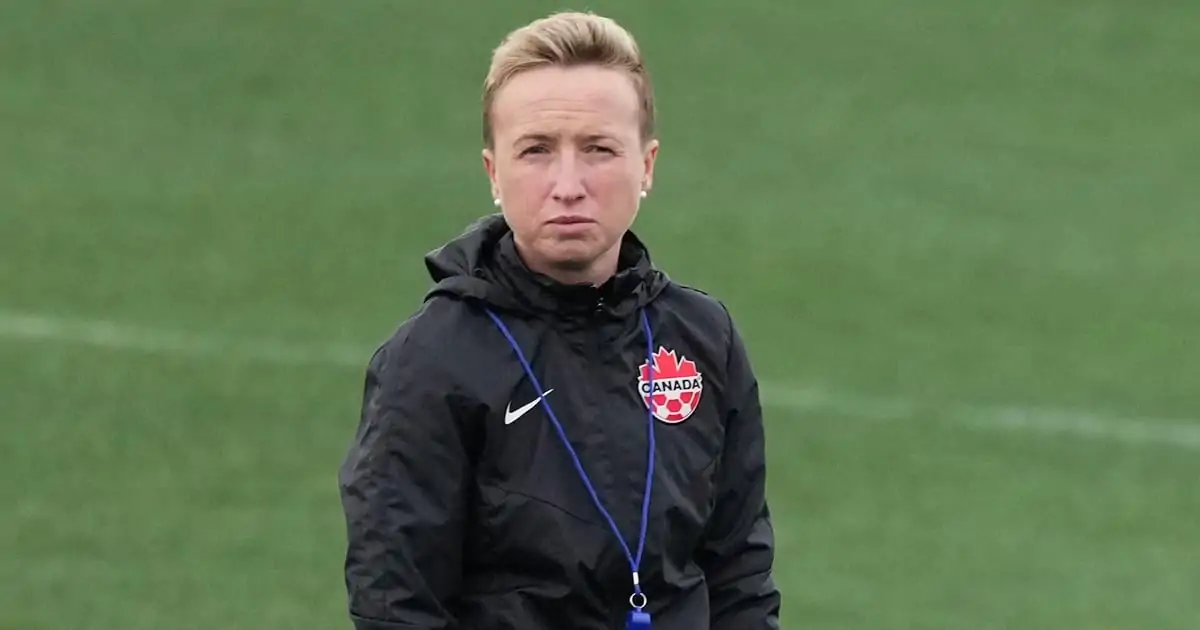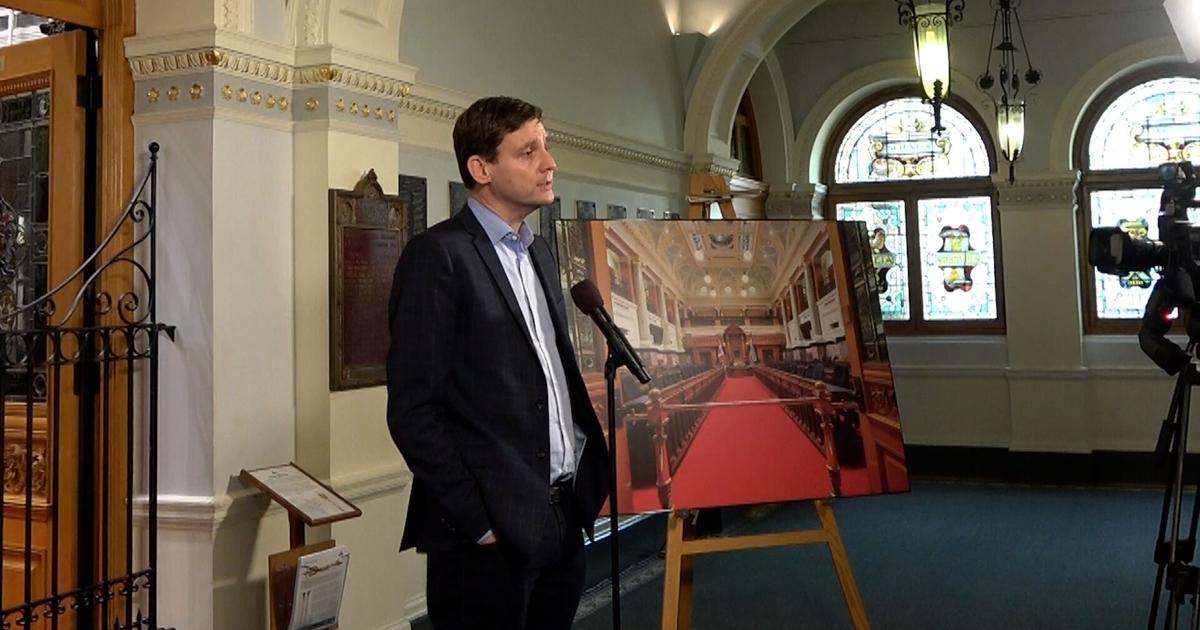News
COVID-19: How do we control the virus from here? – CTV News

With much of Canada in the midst of a summer wave of COVID-19, public health officials and physicians have mixed views on how provinces and territories respond from this point on.
Although COVID-19 testing is not as widespread as it used to be, other metrics such as wastewater testing show cases are on the rise. The more infectious BA.4 and BA.5 Omicron subvariants now make up a majority of the samples collected and genome sequenced, data from the Public Health Agency of Canada shows.
Over the past few weeks, physicians have been asked whether certain public health restrictions, such as mask mandates, need to be put in place in order to control the latest, or seventh, wave of COVID-19.
“I think that if you’re doing things outside you really don’t need the masks unless it’s really crowded, and I think that’s where people use their discretion,” infectious disease specialist and University of Toronto faculty member Dr. Anna Banerji told CTV’s Your Morning on Thursday.
“But I think in certain places if the numbers are going up — and we expect the numbers to go up again in September — that there should be certain places that they should have mask mandates.”
This would include settings where there are vulnerable people, she said, such as hospitals and long-term care homes.
Whether provinces choose to bring back certain restrictions will depend on their own situations, she said, with measures in the Maritimes differing from those in Ontario, for example.
PROVINCES NOT BRINGING RESTRICTIONS BACK YET
Provinces and territories have lifted nearly all of their COVID-19 public health restrictions, including mask mandates, in recent months and many don’t appear willing to reinstate those measures.
“You know, these largely end up being political decisions, they really do,” infectious disease specialist and University of Toronto faculty member Dr. Isaac Bogoch told CTV News Channel on July 8.
“So I think what we can do in this context is have appropriate messaging.”
That messaging, he said, includes getting up-to-date on vaccines, which help prevent more severe illness, wearing a high-quality mask indoors where COVID-19 is most likely to transmit, and if possible doing activities outdoors.
“These are just simple steps that people can take to help protect themselves and those around them,” he said.
Last week, Ontario Chief Medical Officer of Health Dr. Kieran Moore said the province is not planning to bring back public health restrictions.
At the time, he said he expected Ontario to reach the peak of its current wave, which he described as moving at a “slower trajectory” with “less severe” outcomes, in the following two weeks.
That said, Moore added that he would act accordingly if COVID-19 threatened the province’s health-care system, although even that would be a “contingency for the fall.”
Ontario long-term care homes saw new COVID-19 outbreaks more than double in the first week of July in light of the summer wave. Masking is still required in long-term care and retirement homes in Ontario.
A report from Public Health Ontario, for the week of July 10, shows that deaths in the province from COVID-19 have remained stable, with between 29 and 40 deaths reported weekly in the previous four weeks.
Even as COVID-19 cases rose in the spring, hospitalizations in Canada did not reach the previous peak of the winter Omicron wave, nor has the latest summer wave.
However, hospitalizations tend to lag reports of new cases and Public Health Ontario said that individuals 80 and older continue to have higher rates of hospitalization and death compared to other age groups.
As evidenced by the first Omicron wave in the winter, even if a smaller proportion of people who get the subvariant end up in hospital, a massive rise in cases could result in more people being hospitalized.
B.C. Health Minister Adrian Dix said on July 4 that preparations are underway to fight any potential COVID-19 surges this fall, but there are no immediate plans to return to a provincewide mask mandate.
In Quebec, Health Minister Christian Dubé said during a news conference on July 7 the province would not reimpose health measures. Quebec has reported more hospitalizations currently than any other province.
THIRD AND FOURTH DOSES
Public health officials and infectious disease specialists continue to recommend that residents get a third vaccine dose, with some provinces widening eligibility for fourth doses to all adults.
Toronto epidemiologist Dr. Prabhat Jha told CTV News Channel on July 11 that along with masking indoors, a third dose will offer the best protection against a fall wave of COVID-19.
He also believes the definition of being “fully vaccinated” should change to three doses, although uptake has lagged compared to first and second doses.
As of June 27, almost 56 per cent of people 12 and older have received at least one booster, the Public Health Agency of Canada reports.
“Politicians have lost interest and the public has lost interest, but that remains the single most important strategy and I would like to see a much clearer push on those before we even talk about fourth doses, which are relevant but only for a really subset of the population,” Jha said.
Dr. Dale Kalina, an infectious disease physician at Joseph Brant Hospital in Burlington, Ont., told CTV News Channel on July 9 that the current vaccines are still doing a good job of preventing severe disease.
“Of course, the importance of three doses of a vaccine for the vast majority of people can’t be understated,” he said.
“And then of course adding to that four doses, in general for people whose immune systems aren’t going to respond as well, and I think that’s where we are right now with respect to vaccines.”
But even if hospitalizations and deaths don’t reach levels seen in past waves, greater spread of the virus will have an effect on society, whether it’s from more people developing long-COVID symptoms or having to miss work, particularly in hospitals, Montreal-based epidemiologist and cardiologist Dr. Christopher Labos told CTV News Channel on July 7.
“If we continuously allow COVID to just infect large swaths of the population, we are going to have a huge number of people left with debilitating symptoms and that’s going to make it hard for society to function,” he said.
“When we talk about living with COVID, we’re not going to be able to live with COVID if everybody is sick.”
With files from CTV News and The Canadian Press
News
Toronto Sceptres open camp ahead of second PWHL season |

The Toronto Sceptres have opened training camp for the upcoming PWHL season, with a new logo, new colours, new jerseys and a new primary venue in Coca-Cola Coliseum. The team has a lot to look ahead to after a busy off-season and successful inaugural campaign. (Nov. 12, 2024)
News
Major shakeup at Canada Soccer in wake of drone-spying scandal |

After a lengthy independent report on the Summer Olympic drone-spying scandal, Canada Soccer says women’s head coach Bev Priestman, assistant coach Jasmine Mander and analyst Joey Lombardi will not be back with the organization. It found the “practice of conducting surreptitious surveillance of opponents” predated this summer’s Paris Olympics. Former coach John Herdman has yet to give evidence. (Nov. 12, 2024)
News
Eby pays tribute to former B.C. premier John Horgan |

B.C. Premier David Eby says John Horgan was an inspirational leader who guided the province’s New Democrats out of the political wilderness after 16 years in Opposition. Eby says his predecessor as premier, who has died after a third bout with cancer, was known for his compassion for people from all walks of life but also his sharp tongue. (Nov. 12, 2024)
-

 News24 hours ago
News24 hours agoWaymo’s robotaxis now open to anyone who wants a driverless ride in Los Angeles
-

 Business24 hours ago
Business24 hours agoTrump campaign promises unlikely to harm entrepreneurship: Shopify CFO
-

 News24 hours ago
News24 hours agoWorld’s largest active volcano Mauna Loa showed telltale warning signs before erupting in 2022
-

 Sports24 hours ago
Sports24 hours agoPWHL MVP Spooner set to miss start of season for Toronto Sceptres due to knee injury
-

 News24 hours ago
News24 hours ago‘The Bidding War’ taps into Toronto’s real estate anxiety |
-

 Business24 hours ago
Business24 hours agoRioCan cuts nearly 10 per cent staff in efficiency push as condo market slows
-

 Business23 hours ago
Business23 hours agoJapan’s SoftBank returns to profit after gains at Vision Fund and other investments
-

 News12 hours ago
News12 hours agoChrystia Freeland says carbon rebate for small businesses will be tax-free






















